Stability of Malaysian PM Anwar’s unity government at stake amid spat over Najib Razak release
In a bid to free its jailed former party president, the United Malays National Organisation (UMNO) - Mr Anwar’s biggest partner in the unity government - has stepped up pressure on the Pardons Board in which the prime minister is a member.
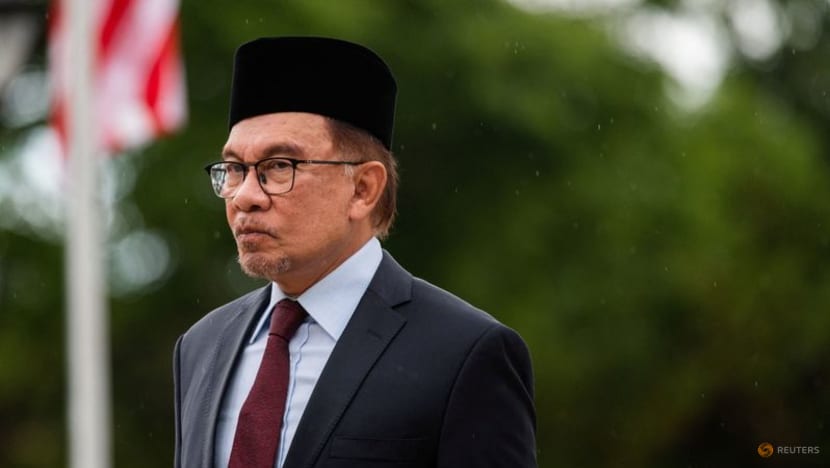
KUALA LUMPUR: Malaysian Prime Minister Anwar Ibrahim’s commitment to fighting corruption in the country has come under the spotlight, risking instability in the government.
Mr Anwar has long talked about tackling the scourge of corruption in Malaysia, but the ongoing debate over whether former prime minister Najib Razak should be released from jail before Eid celebrations has created a dilemma for him.
The 69-year-old Najib was imprisoned for 12 years last year over corruption charges in the 1Malaysia Development Berhad (1MDB) debacle.
Now in a bid to free its former party president, the United Malays National Organisation (UMNO), Mr Anwar’s biggest partner in the unity government, has stepped up pressure on the Pardons Board in which Mr Anwar is a member.
Meanwhile, the country’s anti-corruption commission has launched a probe into alleged wrongdoing by lawmakers that are part of the government bloc itself, the latest involving Human Resources Minister V Sivakumar.
PRESSURE FROM THE BIGGEST PARTNER
The 19-party coalition government is the biggest ever in the country’s history.
Managing the diverse parties’ interests is no mean feat for Mr Anwar, who took over as the 10th prime minister last November.
Five months on, UMNO is ramping up efforts to free Najib, after its former party president had exhausted all avenues of appeal in court and failed in a recent review to overturn his conviction and sentence.
Early this month, Law Minister Azalina Othman Said, who is from UMNO, revealed that the anti-corruption agency in its probe last year found the high court judge who convicted Najib had breached the Judges’ Code of Ethics and had a conflict of interest.
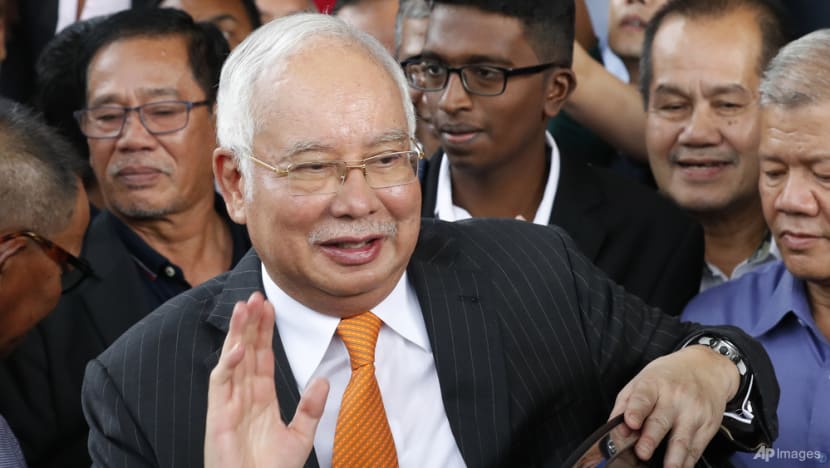
The Malaysian Anti-Corruption Commission (MACC) chief commissioner Azam Baki has since denied leaking the report.
“It is no more legal. All legal procedures have been exhausted, so now it’s up to the king to exercise his discretion in the so-called court of compassion,” said Ms Azalina.
UMNO’s actions are said to have put the country’s institutions at stake.
“This is a serious issue (and) it's an effort that undermines various government institutions,“ said former Health Minister Khairy Jamaluddin, who was expelled from the party in January this year.
UMNO’s former information chief Shahril Hamdan, who was in January this year suspended from the party for six years, said: “It is a slippery slope. The end justifies the means without taking into account the long-term impact. This has set a dangerous precedent, a lot of things can go wrong.”
Many, including non-government organisations, have raised concerns about PM Anwar’s reform pledges and the long-term stability of his unity government stemming from the ongoing episode.
However, some leaders of the Pakatan Harapan (PH) coalition, the main bloc spearheading the unity government, are downplaying the risks.
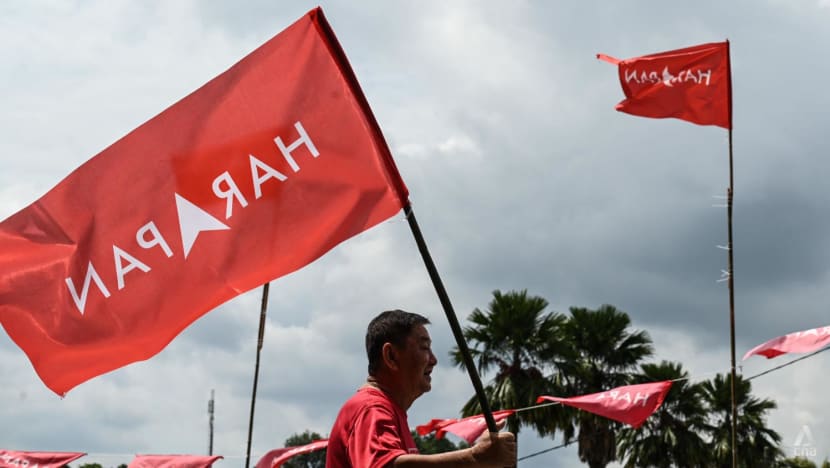
Parti Amanah Negara (Amanah) president Mohamed Sabu said there is “no problem” for the government to complete its full term. “I said this because everybody wants to be in the government,” he said.
FOCUS ON THE ECONOMY
Political analysts told CNA that for the unity government to serve its full five-year term, Mr Anwar needs to convince all coalition partners to focus on the economy.
Mr Adib Zalkapli, director at BowerGroupAsia, said: “All the parties in the unity government, they have the common goal of winning the support of the Malay-Muslim majority, which is widely perceived to be strongly behind PN (Perikatan Nasional). And that common goal unites PH and UMNO.”
He added: “The bigger issue facing the government is not the Pardons Board or what happened in UMNO, but the economic recovery.“
Mr Anwar has made eight overseas trips so far to attract billions of new foreign investments and create high-value jobs for Malaysia. He recently visited China, where he met Chinese President Xi Jinping.
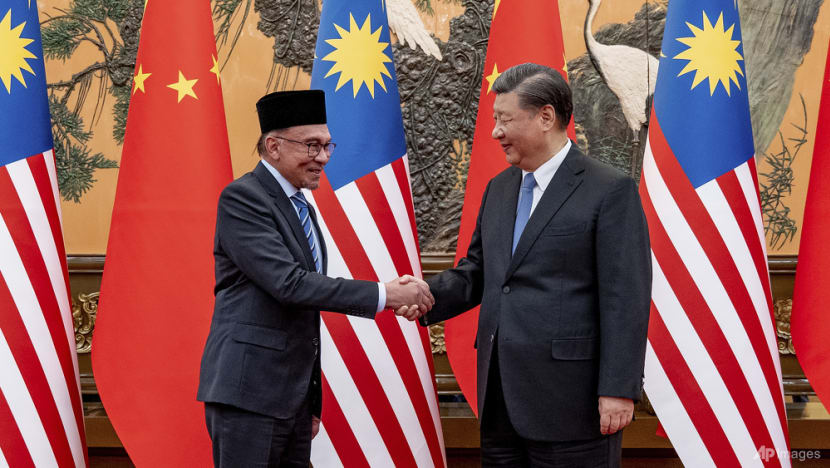
Efforts to transform the economy, create job opportunities, and address the cost of living issue will have to gain more momentum, in order for the PH coalition to retain power in the states of Penang, Selangor and Negeri Sembilan in the upcoming polls, widely expected by early August, said analysts.
CALLING FOR PATIENCE OVER REFORMS
KRA Group research manager Keith Leong told CNA that the unity government should not drag its feet, and instead try to achieve as much as it can with the strong mandate it appears to have currently.
“The coming together of many disparate coalitions who this time last year were fierce rivals – for decades, in the case of the PH and BN components – means that it may take time finding common ground on the myriad issues facing Malaysia,” he said.
Mr Leong said that PM Anwar needs to persuade the public “that reforms must be sequenced”, and that some of them may just not be immediately possible within the framework of the unity government.
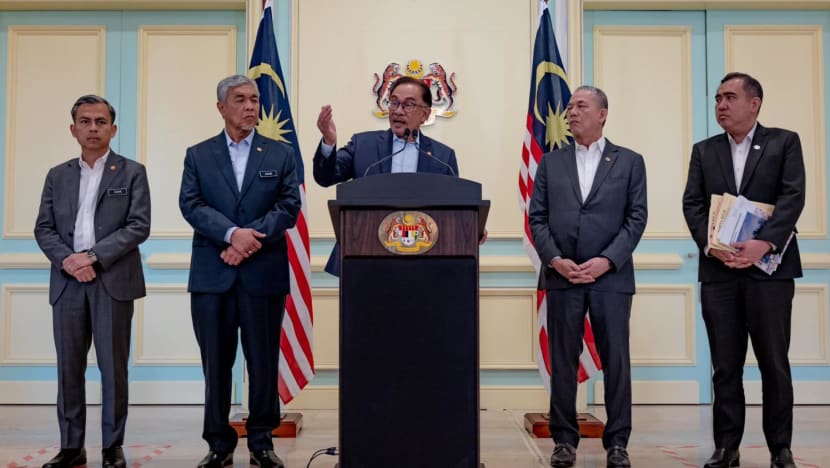
Speaking in Penang over the weekend, PM Anwar had asked the people to be patient, explaining that it will take a few years for some of the reforms to come to fruition.
For now, he is focusing on mitigating the impact of rising costs ahead of the six upcoming state elections, which will also see contests in Kedah, Kelantan and Terengganu.
“Unfortunately, a lot of this is caused by external factors beyond the control of the government, but eventually people will blame the government if the cost of living issue is not addressed,” noted Mr Adib.
















